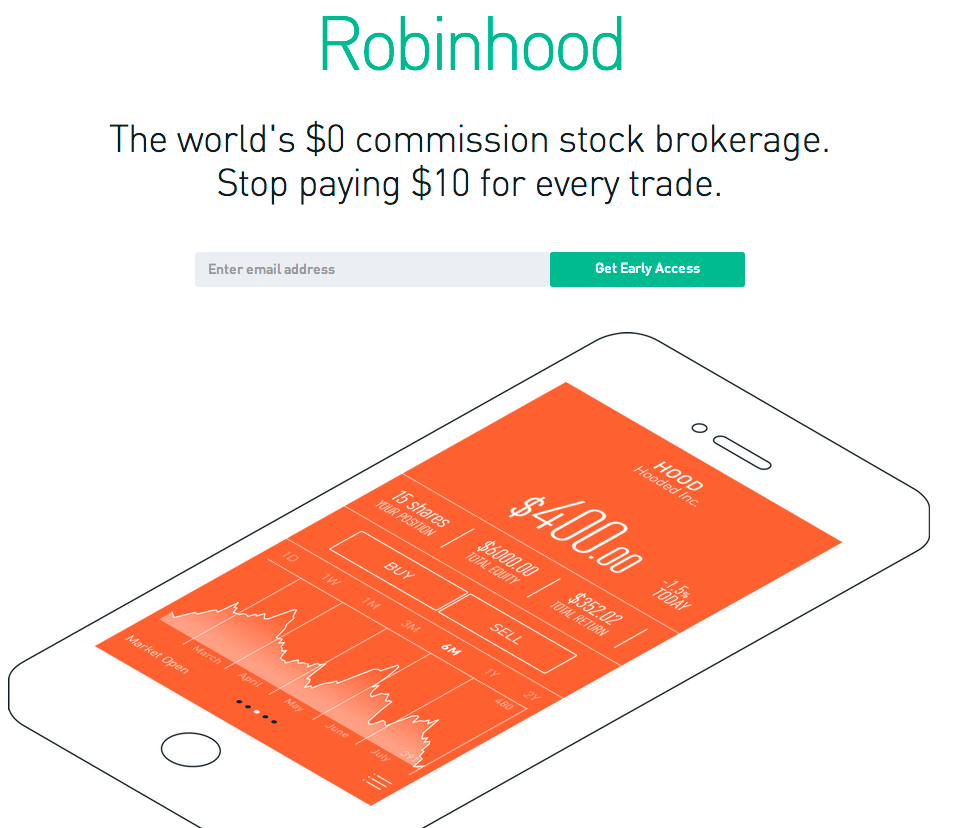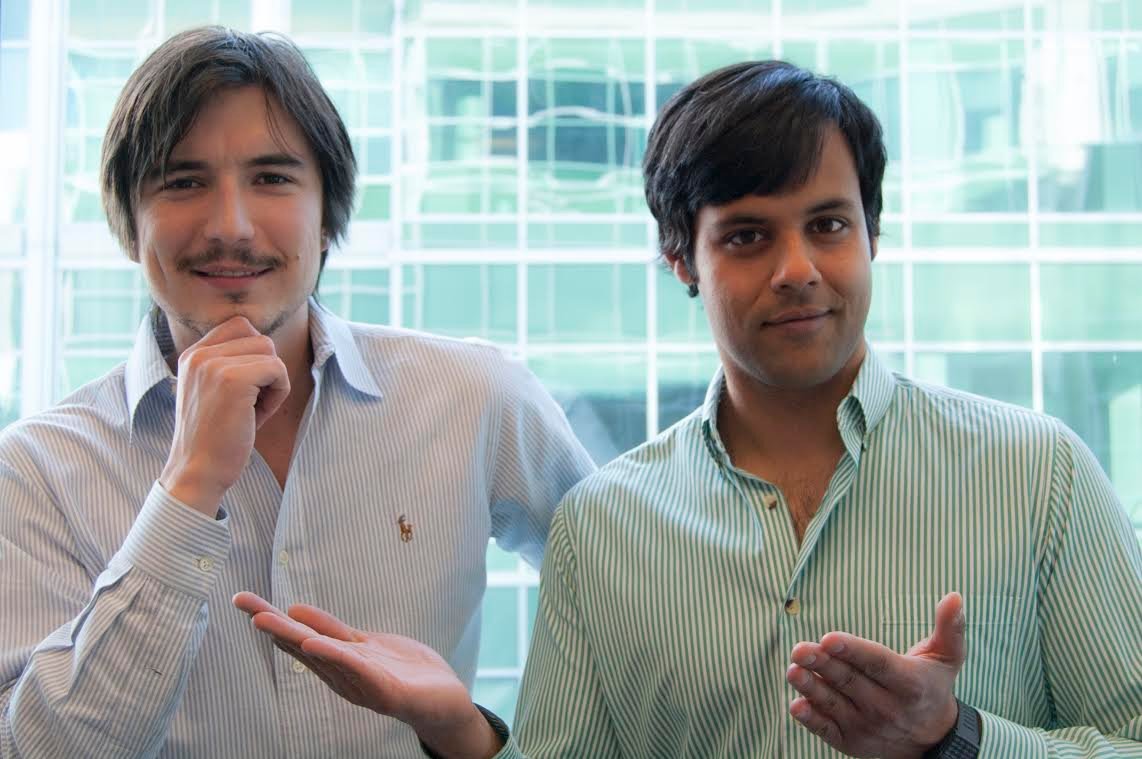
(Update: To reflect how Robinhood absorbs fees)
Listen up. If you’re a startup, the best way to get noticed is to offer a straight-forward value proposition. Providing a way for investors to pay zero commission on stock trades is a pretty darn good one.
Redwood City, Calif.-based Robinhood is a mobile financial services company that will be doing just that. By early next year, Robinhood’s iPhone app will be available, allowing investors to make stock or ETF trades on their iPhone without paying commissions. An iPad and Android version will be released soon after.
The startup just closed a $3 million seed round, led by Index Ventures, with commitments from a16z seed, Rothenberg Ventures and angel investors Tim Draper and Howard Lindon joining. Google Ventures invested $250,000 in August 2012.
“As an high-frequency trader, your costs of doing business are really low,” said Baiju Bhatt, one of the founders of Robinhood, explaining how he and his co-founder decided to pursue this startup, the third one both had worked on together. “It costs of one-hundredth of pennies per share to put in an order. Compare that to a retail broker, where it’s $10 a trade.”
Bringing that commission rate down for retail investors has been Bhatt and his co-founder Vladimir Tenev’s goal. Hence the name Robinhood, after the folk hero who robs from the rich to give to the poor.
And they’re well-suited to execute on this problem having built and licensed technology for sell-side institutions. “We were building/licensing technology that allowed bulge-bracket firms to connect to public markets with low latency,” said Bhatt. “In the process of doing that, we became familiar with the market structure and how broker-dealers work.”
A broker-deal is registered with the US Securities Exchange Commission and can execute trades and sell securities on behalf of clients. For that service, they can earn a commission. Obtaining a broker-dealer’s license is not easy. It takes time and the firm’s executives must all be licensed with the proper securities licenses. Bhatt and his co-founder are not licensed brokers, leaving them no choice but to set up Robinhood Financial, a wholly-owned subsidiary that manages all the transactions. The subsidiary has its own management team. The two founders also don’t directly interface with the day-to-day operations of that subsidiary, said Bhatt.
So how can Robinhood not charge fees (at least for now)? At the same time, Robinhood plans to charge when clients trade on margin. “The cost per transaction to us is very nominal,” said Bhatt. “And [in fact] we make a small profit on average per transaction. We get paid a small amount per transaction to venues we put orders through. We send our orders to an executing broker, that behaves like an exchange. They will pay us a small amount per transaction for us to send our orders to them. There’s a handful of executing brokers that take orders from all the major retail brokers.”
So who’s Robinhood targeting? Clearly with its focus on mobile, Robinhood is zeroing in on the Millennial generation.
“Millennials don’t really use brokers,” said Bhatt, who is part of that generation born between early 1980s and early 2000s. (Bhatt is pictured below with his co-founder). “The average retail brokerage customer is 45 years old, while younger investors account for 10% of retail brokerage customers.”
To that end, that’s the market they’re going after. Bhatt wouldn’t say what he expected the average order size to be, but he did say that more trades are happening on mobile devices.

Trading begins in 2014. But you can sign up today. Robinhood just crossed 20,000 sign-ups since Saturday morning.















